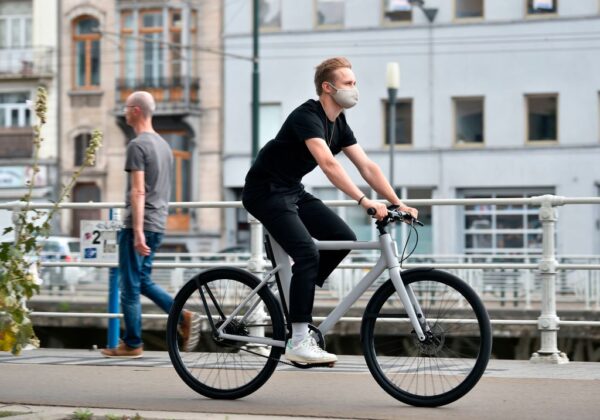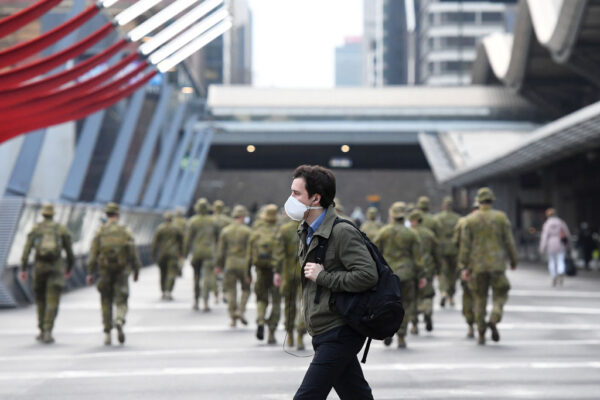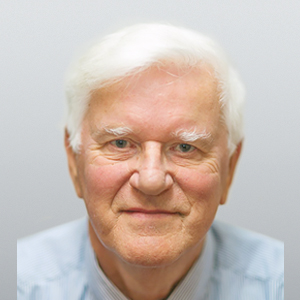Commentary
In 1998, Harry Pearson published a delightful book about Belgium, “A Tall Man in a Low Land.” In the introduction to his book, he recalled that, at a dinner party, one of the diners inquired as to why he wanted to author a book about such a “boring” country.
However, a reading of the book certainly reveals that Belgium, rather than boring, is in fact a fascinating country at the crossroads of Europe. It has a rich and colourful history, and it has produced fine artists, scientists, authors, and sportspeople.
Before its independence in 1830, foreign-based rulers governed the country. Belgium was also occupied by the Germans in both World Wars.
The book is a revealing and often amusing travelogue that highlights the Belgians’ fascination with beer—around 1,500 distinct brands of beers of all colours, flavours, and alcohol percentages are produced in Belgium.
Belgium’s beer culture is recognised by UNESCO as a part of the country’s intangible cultural heritage. Its most important cycling race, The Tour of Flanders, is a major annual event that captivates cycling enthusiasts throughout the world.
After each general election, Belgium is often unable to form a government for a long time. Indeed, on June 1, 2011, Belgium became the world record holder for the time it took to form a government—353 days—a record previously held by Cambodia!
Yet, during that time of indecision, the country managed to survive quite well, thereby proving that a country seeking to install a democratically elected government could be governed by a caretaker administration.
For this reason, a commentator controversially argued in The Economist that “Belgium offers a lesson in stability through chaos. Even its demise would be serene. It is the world’s most successful failed state.”
But even success has its limits.
Going Through a Rough Period
Indeed, when I recently talked to an acquaintance of mine—a prominent commentator on Belgium’s economy and politics—he told me that the country had changed dramatically since my last visit in 2019, in pre-pandemic times.
For him, the country is besieged with problems, including an arcane pension system, the long-term viability of which is constantly being reviewed but never fixed. He calculated that the cost of energy has trebled since the onset of the COVID-19 pandemic and the war in Ukraine, inflation is skyrocketing, and government spending is no longer under control.

In September 2022, the inflation rate in Belgium increased to 11.27 percent—the highest inflation rate since January 2019. The unemployment rate is 6.3 percent, but with important regional differences (3.9 percent in Dutch-speaking Flanders, 8.9 percent in French-speaking Wallonia, and 12.5 percent in the bilingual capital region of Brussels). The monthly average wage also rose to 3,832 Euros (US$3,700).
The worldwide malaise hit Belgium hard. People who until recently were classified as middle-class are slowly sinking into the quagmire of poverty.
Even attendance at soccer matches, which adoring and sometimes fanatical fans patronised, has dropped to alarming levels, thereby fuelling the losses suffered by Belgium’s soccer clubs, the finances of which had already been pummelled by the draconian COVID-19 restrictions.
Nevertheless, the country still celebrates its sporting heroes, like Remco Evenepoel, a fabulously talented cyclist who this year won the Men Elite Road Race—the Union Cycliste International Road World Championship—in Wollongong on Sept. 25, and this year’s Spanish Vuelta.
And a few days ago, Max Verstappen became world champion for the second time in Formula One race driving. However, even these sporting successes cannot hide the pessimism that is engulfing the country.
Of course, Belgium, like all NATO countries, experiences war-like conditions. It has provided eight million Euros for non-lethal assistance to Ukraine to thwart the Russian invasion.
Belgium’s energy dependence on Russia will create huge problems, especially now that the winter months are coming. Russia-sourced gas is being substituted with gas from Norway.
Australia Is Not That Different
I explained to my friend that the Belgian situation is not unusual and that Australia, too is suffering from an existential crisis. Specifically, I told him about the rate of inflation in Australia—6.1 percent at the moment, the marginalisation of conservative viewpoints by Australia’s woke brigade and the emergence of Australia’s most illiberal era since World War II.
A pall of conformity hangs over people who no longer dare to express their opinions, and they are fearful of being silenced, humiliated, or ridiculed. Australia’s self-appointed new morality brigade moves against anyone daring to act on their religious beliefs or speak their minds—a situation that is enthusiastically promoted or conveniently neglected by spineless politicians.

Australia is also suffering from security concerns, especially the volatile situation of the Chinese economy and the threat that Beijing’s army might invade a democratically ruled Taiwan.
The geopolitical situation in the Pacific is as concerning for Australia as the Ukrainian conflict is for Belgium. It needed a personal visit by Manasseh Sogavare, the prime minister of the Solomon Islands, to reassure Australia that a Chinese military base would not be tolerated in the Islands.
Hence, the experiences of Australia and Belgium are not so different. In fact, the history of these countries is intertwined because Australians fought in World War I on Belgian territory.
Australians, who died in the trenches of West Flanders, are immortalised on the Menin Gate where, every night, members of the Last Post Association play their traditional final salute to the fallen soldiers.
The thousands of Australians who died in Flanders are also immortalised in John McCrae’s enduring poem, In Flanders Fields:
In Flanders fields the poppies blow
Between the crosses, row on row,
That mark our place; and in the sky
The larks, still bravely singing, fly
Scarce heard amid the guns below.
If there is anything that Pearson has proven in his beguiling book, it surely is that Belgium is far from boring but an exciting little country, the history and culture of which should appeal to Australia.
Views expressed in this article are the opinions of the author and do not necessarily reflect the views of The Epoch Times.
"exciting" - Google News
October 13, 2022 at 01:34PM
https://ift.tt/GyCYRw4
Belgium: The Exciting Little Country - The Epoch Times
"exciting" - Google News
https://ift.tt/6ftwq5a
Shoes Man Tutorial
Pos News Update
Meme Update
Korean Entertainment News
Japan News Update
Bagikan Berita Ini















0 Response to "Belgium: The Exciting Little Country - The Epoch Times"
Post a Comment